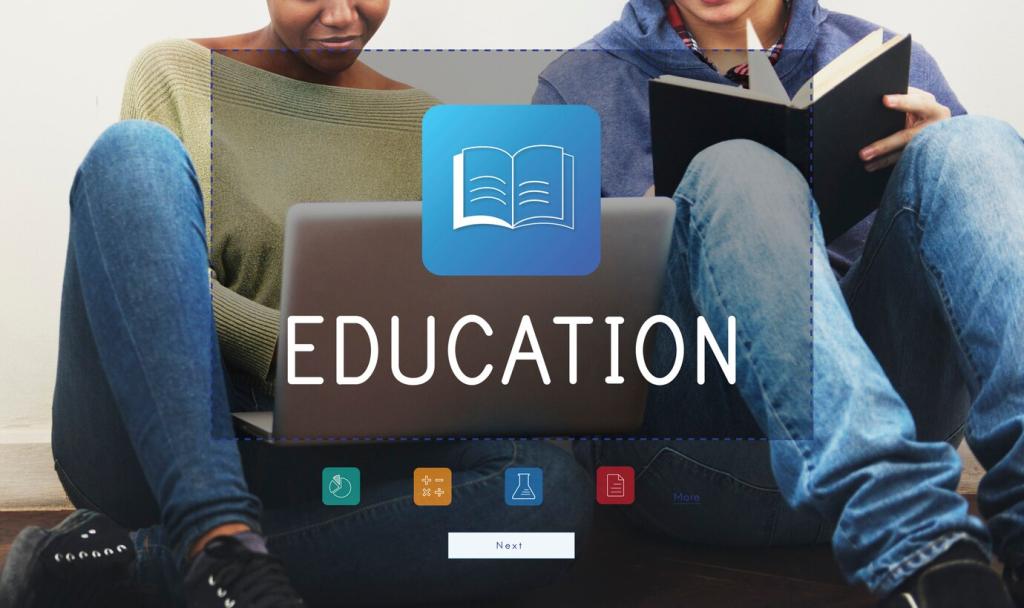How Education Powers Sustainable Economic Development
Human Capital and Productivity
From Classrooms to Output per Worker
Economists consistently link average years of schooling with higher output per worker. Better numeracy, literacy, and teamwork skills reduce errors, speed adoption of new tools, and make every hour count—key ingredients for durable, climate-conscious growth.
The 10% Earnings Dividend
Meta-analyses often find each additional year of schooling raises earnings by around ten percent. Those higher wages fuel household demand, expand the tax base for public goods, and enable long-term investments in clean infrastructure and social protection.
Case: A Factory Floor Reimagined
After short courses on lean management and data basics, a mid-sized textile plant cut defects and energy waste while lifting throughput. Workers redesigned workflows, saving kilowatts and time. The payoff: better margins, safer jobs, and a lighter environmental footprint.

Strong higher education ecosystems host research centers, tech-transfer offices, and incubators that connect students with industry. These networks accelerate discovery, reduce commercialization risks, and spread knowledge spillovers that raise regional productivity for decades.
Innovation, Research, and Entrepreneurship
STEM education broadens the pipeline of engineers and scientists creating batteries, efficient motors, drought-resistant seeds, and circular materials. When curricula emphasize sustainability, entrepreneurial graduates design businesses that cut emissions while creating reliable, decent jobs.
Innovation, Research, and Entrepreneurship
Inclusive Growth and Gender Equality
Years of schooling for girls correlate with higher earnings, lower infant mortality, and delayed, healthier motherhood. These intertwined benefits boost household savings, labor force participation, and the intergenerational accumulation of human capital that sustains long-run development.

From Coal to Solar: Reskilling at Scale
A regional program trained energy workers in solar installation, electrical safety, and maintenance. Within a year, alumni built community microgrids, cutting outages and bills. Families gained stable incomes while local governments advanced climate and economic targets together.
TVET for Circular Economies
Technical and vocational education in repair, remanufacturing, and materials sorting reduces waste and imports. Graduates extend product lifecycles, create local service markets, and help firms comply with evolving sustainability standards without sacrificing competitiveness or job quality.
Climate Literacy Equals Better Decisions
When students study climate science, resource management, and systems thinking, households adopt efficient appliances and businesses optimize logistics. Informed choices compound into community resilience, lowering risks from heat waves, floods, and volatile commodity prices.
Digital Skills and the Future of Work
01
Closing the Digital Divide
Connectivity matters, but so do skills. Programs that combine broadband access with practical training in spreadsheets, coding, and cybersecurity unlock productivity gains for farmers, nurses, and shop owners, ensuring no community is left behind in the digital economy.
02
SMEs Go Digital
After e-commerce and data analytics workshops, small firms improve inventory planning, reach new customers, and reduce wasteful stockouts. A bakery used demand forecasts to cut leftovers and energy use, turning savings into staff training and new electric ovens.
03
AI Literacy for Everyone
Courses on AI fundamentals, ethics, and prompt design help workers collaborate with tools rather than fear them. Paired with critical thinking, these skills raise productivity while safeguarding privacy and fairness in hiring, lending, and public decision-making.

Smart Finance, Big Returns
Blending public investment with targeted support—school meals, conditional cash transfers, and early childhood programs—yields high social returns. Stable funding and transparent procurement keep classrooms equipped while protecting equity through economic cycles.

Teachers and Quality at the Core
Effective teachers magnify learning. Professional development in pedagogy, formative assessment, and inclusive practices raises outcomes, particularly for disadvantaged students. High-quality teaching turns education into the sustainable growth engine policymakers promise.

Data for Accountability and Improvement
Education management information systems track attendance, learning progress, and resource use. Public dashboards invite community oversight, while anonymized data supports research that refines curricula and aligns training with evolving labor market needs.
